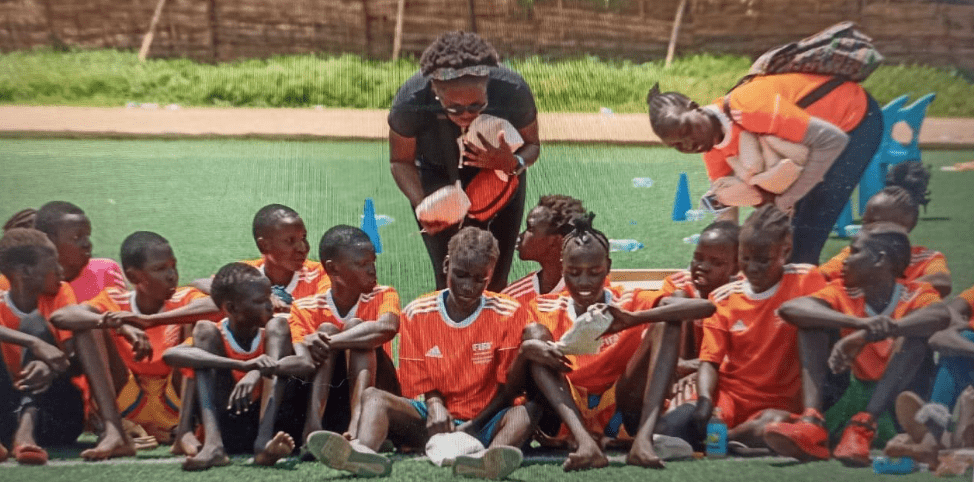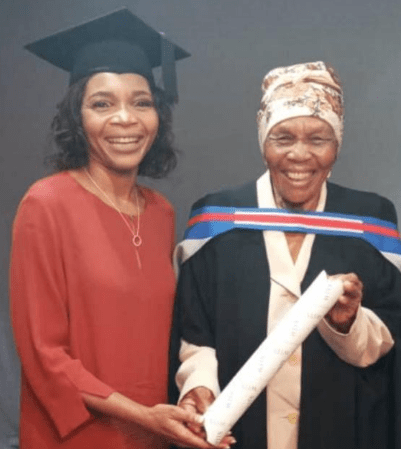This post is a guest blog from Lufuno Barro, Gender, Public Health and International Development Specialist.

For as long as I can remember, I have been drawn to the fight for gender equality. Over the years, this passion grew as I looked to my mother’s life-long resilience against inequitable gender norms for inspiration. My mother, Mrs. Selinah Muvhango, wanted to be a teacher, but after being forced to drop out of school, she raised four children single-handedly while also financially supporting her family and children’s university education through farm labor and by selling fruits at the market. She knew that the only way to ensure her children, particularly her daughters, do not face the same experiences she faced was through education. This is embodied in her famous expression: “first pursue education – a husband who will not divorce you.”
Years later, I followed such wisdom and found myself writing my Masters of Public Health thesis with my mother in mind. My studies revealed that older women are primary socializing agents and that they are potential critical sources of social norms change. My mother’s own resilience and commitment to this social change made my MPH possible and upon graduation, I dedicated my degree to her.

After more than 20 years of working in GBV programming, I came to recognize that inequitable gender norms are the root cause of gender inequality. Therefore, I have made it my mission to address inequitable gender norms to advance gender equality for sustainable development. The GenderPro Capacity Building Programme provided me with the opportunity to achieve my mission of advancing gender equality by equipping me with the knowledge and skills to integrate gender into my work.
This programme provides a cutting-edge best practice approach that “leaves no stone unturned.” Through the Action Learning Project (ALP), I had an opportunity to apply learned concepts in real-life programming. My ALP was based on Kitambaa, an emerging social enterprise focusing on promoting menstrual health to improve girls’ access to education and women’s economic productivity in Senegal.
My ALP contributed to the design of Kitambaa’s gender transformative menstrual health program, the intervention package included: An awareness of menstrual health, recognition of discriminatory norms and practices, an emphasis of the production of washable sanitary pads, the provision of pads, an improvement of WASH infrastructure, economic empowerment, and advocacy. As a result, the program’s approach had multiple effects in various sectors and contributed to at least eight Sustainable Development Goals (SDGs).This approach earned Kitambaa a partnership with FIFA which lead to the launch of the pilot project in South Sudan entitled: “Promoting menstrual health through soccer and development.”

As a Kitambaa Technical advisor as well as a lead researcher for the project, I am grateful for the GenderPro Capacity Building Programme and the GenderPro Credential that gave me a head start! I am delighted about the successful launch of the project and the difference it will make in the lives of women and girls around the world.
About the Authors

Lufuno Barro is a Gender and International Development Specialist and Public Health Specialist with over 20 years of experience in Gender-based violence programming. She is a former IMAGE Director and currently an IMAGE Technical Advisor. She has made expert contributions to the development of guidelines for GBV programming at the global level, including INSPIRE and RESPECT frameworks, USAID’s Foundational Elements for Gender-Based Violence Programming in Development, and IPV – ADAPT + framework and adaptation guidelines. She is an active member of various advisory groups.

Be First to Comment